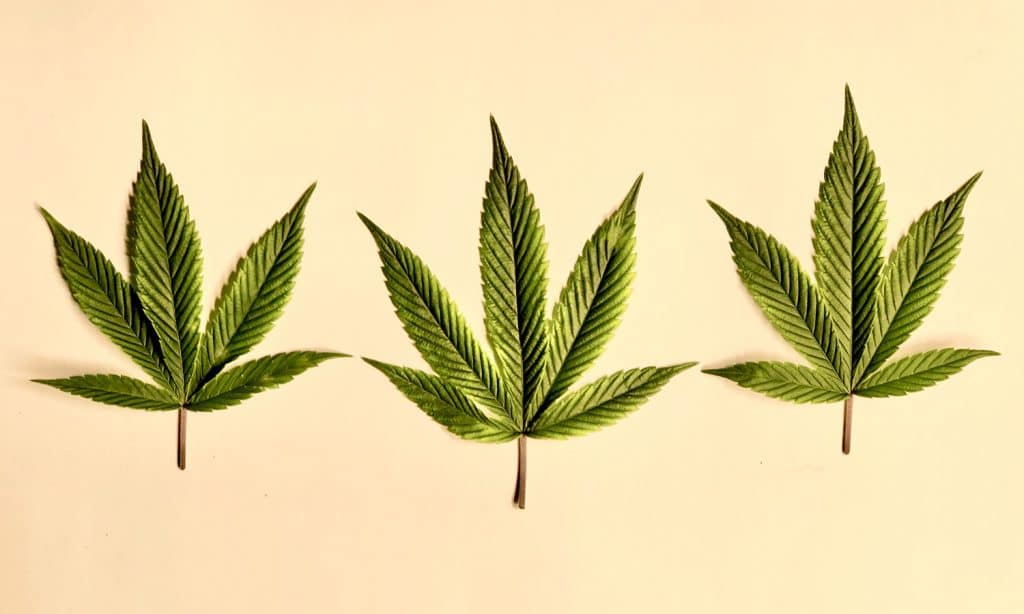Marijuana history ties directly into larger conversations around police brutality and systemic racism than most Americans realize.
When Brookings Institution senior fellow John Hudak wrote Marijuana: A Short History in 2015, cannabis legalization was still regarded with a curious novelty by many Americans. Since then, cannabis has emerged in the national conversation through politics, culture, medicine, wellness, and more. And in light of recent discussions around policing and systemic racism in the United States, Hudak believed it was important to build upon that history and discuss how the roots of prohibition impact us today. Here is some insight into marijuana reform, policing and racial justice.
Hudak wrote a new edition to his book, which will be available June 30. To promote the book’s launch, Brookings hosted a webinar with Hudak, Buddings Solutions CEO/founder Shanita Penny, and Politico reporter Natalie Fertig to unpack how cannabis sits at the intersection of race, politics, and culture in America.
When many Americans think about marijuana history, Hudak explained, they focus on the 60s and 70s, when Richard Nixon introduced the Controlled Substances Act, which officially criminalized cannabis. But the foundation of cannabis laws as we recognize them today really started at the turn of the 20th century.
“Cannabis law and drug policy in general really had explicitly racist roots in the United States. Cannabis laws initially came about out of fear of Mexican immigration to the United states,” said Hudak. “The term ‘marijuana’ was rooted in that attempt white Americans and immigrants coming across the border of Mexico. That spiraled into a broader, racially divisive set of policies that, by the 1920s, begin to vilify black Americans, in addition to Latinos and immigrants.”
That eventually led to Nixon’s infamous War on Drugs. In reviewing those policies and statements made by politicians, Hudak was struck by the languages used at the time. It was rhetoric typically reserved for war. And if it is a war, why shouldn’t the police use war equipment to fight it?
“That really transformed how police departments operate in this country,” Hudak said. “It was all based on opposition to people of color, opposition to agreement, and opposition to certain political groups.”
RELATED: The Role Marijuana Legalization Can Play In Fighting Racial Injustice
Sadly, as Penny said, it’s taken 50 years to reach a place where lawmakers and industry leaders have begun addressing the racial aspects of historical drug policy. To repair the damages caused by the Drug War, states have included social equity programs designed to benefit communities of colors that were disproportionately affected by marijuana’s criminality.

But those programs often fail to lift up these communities with the support necessary to thrive. Creating expungement programs that require extra bureaucratic legwork from marijuana offenders doesn’t go far enough, Penny said. Marijuana legalization doesn’t automatically fix all the problems rooted in decades of systemic obstacles.
“Many of the systems that have held these same individuals down most of their lives since they were impacted, or even before that, are still in existence,” Penny said. “They are systems that need to be re-tooled for any of this progressive legislation to ever stand a chance. If we don’t center race and equality in this conversation, it will all be for naught.”
RELATED: Twista, Berner, And Chris Webby Discuss Racial Bias In Cannabis Arrests
State lawmakers might pay lip service to doing this work when constructing legislation, but their actions often fail to provide the foundation necessary for social equity programs to thrive. Massachusetts, for example, only has lifted one social equity-owned cannabis store off the ground for the whole state.
“Cannabis business is hard. It’s hard if you’re well-funded, politically connected, if you’ve run successful businesses and exited them. This idea that giving a business license to someone impacted by the War on Drugs or only making a certain amount of money per year, and now their life is equitable in this country? It’s an absolute joke.
“It doesn’t make sense to throw this license out there and expect them to be successful and thrive,” she continued. “We’ve seen millions and millions of dollars being lost annualy by large companies. It just isn’t realistic that there’s an expectation these folks can get up and running faster than anyone else.”
RELATED: Joe Biden’s Toughest Opponent Is His Criminal Justice Record
While cannabis legalization is popular in America, it isn’t necessarily salient, Hudak explained. Many voters have access to cannabis through legal markets and if they don’t, can’t usually access it without serious consequences, especially if they’re white. That cause a dilemma where many people see other issues that need to come to the front of the line before cannabis.
“That said, if cannabis reform gets folded into the larger conversation around racial justice and policing, that could create that policy window,” said Hudak. “Where everything comes together at the right time and something can get done. That makes it more salient to Americans. Because then Americans stop thinking about it as can you buy cannabis legally or not. You’re thinking about it as something systemic, something institutional, something that touches a lot of issues.”


